Check out some books by your tutor Fiona Veitch Smith … (click on the book covers to find out more)
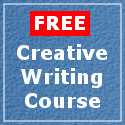 This is the second session of eight in our online creative writing course, in which we’ll be exploring how to write a short story. Now that your creative juices have been stirred, you should be ready to start writing; if not, go back and try some of the exercises in the first session of this course, releasing your creativity.
This is the second session of eight in our online creative writing course, in which we’ll be exploring how to write a short story. Now that your creative juices have been stirred, you should be ready to start writing; if not, go back and try some of the exercises in the first session of this course, releasing your creativity.
Writing short stories versus writing novels
Most new prose writers have the beginnings of at least one novel in their drawer. They will get to chapter three or four and give up because they don’t have the skill, confidence or stamina to carry on. If you’d never run a marathon you would be a fool to enter the Great North Run without first attempting some shorter distances. Short stories are the best place for new writers to hone their craft. But don’t be fooled, they’re not necessarily the easiest option. It takes a great deal of skill to write a short story that’s effective – you will have to curtail any tendency to ramble on. And not all writers need to be novelists either. I believe F. Scott Fitzgerald was quite comfortable as a short story writer and only produced the occasional novel out of pressure from his publisher, while the great Raymond Carver never wrote a novel in his life.
Short stories are an endangered species
There was once a time when every magazine carried some short fiction. Sadly, that time has passed. Now, apart from some weekly women’s magazines in the UK, short stories have retreated between the dusty covers of literary publications. The situation has become so bad that a group of leading writers and publishers got together to start the Save the Short Story Campaign and are beginning to make good progress.
Short stories appear to be doing far better across the pond in America where the art form is more respected and accessible to ‘ordinary’ readers. However, there are signs that this may not continue. Read Stephen King’s thoughts on the decline of the American short story. You can check out Writer’s Market for a list of North American short story outlets.
How long is a short story?
So what is a short story? Short stories can be anything from 500 to 6000 words. Anything under 500 words tends to be labelled ‘flash fiction’ or ‘micro fiction’ (although some would argue it’s still a short story) and anything over 6000 is moving into novelette or novella territory. I would argue that a short story is something that can be read comfortably in one sitting and doesn’t leave you starving or bloated. Popular magazines tend to accept work of between 1000 – 2000 words, more literary ones go for longer. Children’s short stories tend to be under a thousand words. If you would like to write for younger readers, check out some of my articles on writing for children.
A short story is a slice of life
A short story is a slice of life. As such, you should narrow the time frame and geographical location of the piece. One plot, two or three characters and no more than two locations (one would be better) should fit into a short story. If this is too tight a fit perhaps you should be writing a novella or a novel.

Fig 1: Short story time span
How to begin a short story
Start your piece as close to the turning point or climax of the story as possible. Most writers take a paragraph or so to find their feet. On a second reading they will delete the first paragraph as unnecessary exposition or padding. Your first sentence is crucial; it should be filled with energy, intrigue and forward momentum. The reader should be stopped in their tracks and not be able to turn away until they’ve read the whole thing. The first sentence should raise questions that need to be answered. Take for example these openers:

- ‘My mother was making me a dress.’ (From ‘Red Dress – 1946′, Dance of the Happy Shades)
- ‘General Sash was a hundred and four years old. ‘ (From ‘A Late Encounter With the Enemy’, The Complete Stories)
- ‘Fact is the car needs to be sold in a hurry, and Leo sends Toni out to do it.’ (From ‘Are These Actual Miles’, The Oxford Book of American Short Stories)
Exercise 4: Jot down questions that arise from these openings and what, if anything, makes you want to read on. If you can get hold of copies of the stories do so. Ask yourself: were the questions answered? Was I satisfied with the answers? Was the answer what I expected?
Exercise 5: Use a trigger image, phrase or thought (see Releasing Your Creativity) then write down a leading, opening sentence. What questions might be raised? How might you answer those questions in a short story? What setting would be most appropriate to answer the questions? How long will it take for the question to be answered? Can you think of any characters that might help you tell the story and answer the question? (We will be looking at building a character in a future session and try writing another story from their perspective). Look over your answers and see whether or not the outline of a short story is emerging. If not, try another sentence or another trigger image.
Beginning, middle, end
Every short story should have an opening that is developed in the middle to build tension which reaches its climax towards the end, after which there is a rapid conclusion. For those of you who have studied any dramatic or literary theory you will recognise this progression as typical Aristotlean Three Act Structure. In a short story you should not spend too much time in the ‘first act’ where development, setting and exposition take place, and should start your narrative as close to the inciting incident (aka point of change, first turning point or initial crisis) as possible. The inciting incident is the event which upsets the apple cart of the characters’ ordinary world and compels them to act in a certain way in order to bring balance or closure to their disrupted environment. In the Red Dress it is the school dance which the narrator fears will bring humiliation. She then tries to fake illness in order to get out of it, then, when this fails, tries to remain as invisible as possible at the dance. We will look at how a character acts to bring or avoid change change in a future discussion.
Exercise 6: What is the ‘ordinary world’ of your opening sentence? Remember, this may be an abnormal world to most readers, but it should reflect the status quo of your characters before it is challeged or shaken up. What challenges this status quo? This is your inciting incident. Using only three paragraphs (50 – 60 words each) or less, start writing your short story. In this short space you should establish your ordinary world, your main character and the inciting incident of your story.
Obstacles, setbacks, climax and resolution
This is the outline of the rest of your story. Imagine a graph of building tension.

Fig 2: Dramatic development in three act structure
Your story should follow that arc by allowing your character to face obstacles, setbacks and minor victories on the way towards reaching the dramatic climax and bringing resolution.
Exercise 7: If you are graphically minded draw yourself a rough graph or jot down the beginning, middle and end of your story. Now write the story and fill in the gaps. If you’re not so graphically minded, just jot down a few key phrases or events that might carry your story forward to a possible conclusion. Don’t worry, this isn’t cast in stone, and you can change the beginning, middle, end and anything in between at any time. Many writers just write to find their voice. That’s fine. Once you have a first draft, go back and see if it has some kind of structure or arc. If not, you may have to tweak it a little.
I hope this has given you some insight on how to write a short story. Happy writing!
The next creative writing course session is writing from a point of view.
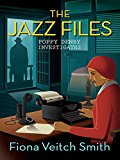
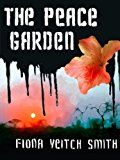
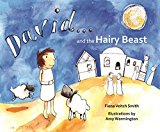
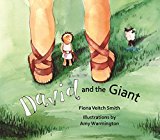
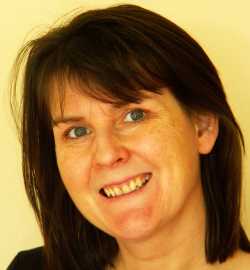 Welcome to The Crafty Writer's free online creative writing course, presented by Fiona Veitch Smith, a freelance journalist, editor, author, playwright, screenwriter and writing teacher. I hope that you'll see a dramatic improvement in the quality of your writing as you work through this course.
Welcome to The Crafty Writer's free online creative writing course, presented by Fiona Veitch Smith, a freelance journalist, editor, author, playwright, screenwriter and writing teacher. I hope that you'll see a dramatic improvement in the quality of your writing as you work through this course. 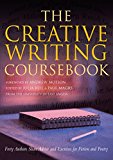
I’ve been wanting to write a short story. Flashes of ideas come to mind, but I don’t know how to begin. Now that I have gone through your pointers, it gives me a beat to start. Thank you.
That’s great news Sally. Keep it up!
I like the guidance provided in this course. I have wanted to get back to writing for a very long time and need to find the discipline to just do it. Having the “steps” to follow gives me purpose and some sort of objective to accomplish each day, so thank you. I would particpiate in a “writing forum” as requested by Alex in May. I would like others to read what I am writing….and I would like to compare my writings (in the lessons) to how other have approached the same lesson. Good stuff, thank you.
I work with teens and we are in the process of writing a Book of Short Stories about medieval Europe. This was a great find.
Glad to be of assistance. Good luck with the book.
It has always been a childhood dream to be a writer and I did not know where and how to start.The previous lesson has been very useful to inspire me towards that journey.As soon as I completed this lesson,I found myself busy scribbling through some pieces of paper like a berserk buffalo.In short,I have been motivated by these lessons to commit pen to paper though I should admit I’m not yet confident with my usage of English and sometimes I ran short of expressive terms.I however would like to know how best can I get over this hurdle in my quest to realising my childhood dream.Your lessons were not only well prepared but well presented also.Thank you for the good work,the lesson has been helpful.
Well I would say ‘berserk buffalo’ is a very expressive term! The best thing to broaden your vocabulary is to read Ndumiso. You will hopefully come across new phrases and descriptions. And you can make them up yourself. There is no end to similes.
I liked the three act description. Entree, main course,sweet, perhaps?
Thank you so very much again. I’ve wanted to write short stories for some time, but was never quite able to get my head around to how exactly to do it. This has not only taught me how to write a short story, but now I’ve written a great short story that I’m delighted with. =) Thank you so, so much for this! The arc was fantastic, and how you apply that to writing the actual story is amazing. You rock! xD xXx
I’ve wanted to write short stories for some time, but was never quite able to get my head around to how exactly to do it. This has not only taught me how to write a short story, but now I’ve written a great short story that I’m delighted with. =) Thank you so, so much for this! The arc was fantastic, and how you apply that to writing the actual story is amazing. You rock! xD xXx
I can’t quite put my finger on what it was, but something about this article made me finally sit down, stop procrastinating and start writing. I wrote a 1,000-word short story for which I’d had the idea for a while. It feels really good to have it on paper (well, on the screen) rather than in my head. Thank you!
Brilliant!!!!!!!
Thanx really helped I Love you
I Love you
Thanks for the help but I have a quick question. Is it possible for the story to begin immediately following the inciting event? Say the story starts not with a flashback but just a quick explanation of how the characters got into the fix in which they find themselves.
Hi Glenn, it’s far more common to do that in theatre (the inciting incident frequently takes place before the action begins) but it’s not impossible for prose. One of the benefits of this approach is keeping the inciting incident a mystery and only revealing what happened later in the story.
Hello Fiona,
I’m a new veteran to this. After ten-years of writing horrible non-fiction for corporations, I now sit down to write for myself. I stare at the screen and I have no voice and I have no words! Its infuriating!
Anyway, I wanted to thank you for the marathon metaphor. It was exactly what i needed. And thank you for putting together this web-guide. I’m loving it!
You’re most welcome, Jonathen. Hope you enjoy yourself!
Thanks Fiona. I’ve been working on some world building for a fantasy novel, or perhaps a series, and since I’m a complete novice to this industry, I thought I might try to write some short stories set in my world and try to sell those to a magazine somewhere just to get some kind of awareness of my world out there. Does that sound like a reasonable plan to you?
Hi Glenn, reasonable in the sense that it is reasonable for someone to expect to be paid for their work, but sadly a very difficult thing to achieve – but not impossible. To get your short stories accepted to a magazine in itself is an achievement but to get paid for it, is even more rare. What I suggest you do is to hone your craft first on competitions then try pitching to magazines. And don’t forget online outlets too. The final session of this course will give you some pointers on outlets.
Good luck
Fiona
been wanting to write somthing for a while but i duno were to start so hopefully this will help
i once saw an advertisement in one of my local newspapers for s short story with the tag line ” then they kissed”. well after writing my story i was left hanging because they did not proceed with the contest so if i can submit my story to you i would be very appreciative of your comments.
Hello Patricia,
Please email me details of the word count of the story so that I can qive you a quote of how much the critique would cost. You may use the contact form on the menu strap.
Fiona
Enjoy the blog post
Hi.Fiona. I want to write about real things. Reality. Stories like that are on here donot interest me. I want to write about God.How would I write about things that I have truly experienced with God in my own life?if you can answer.If not I understand. Janice.
Hello Janice, I have another course called Writing as Worship and Witness that you may find interesting http://www.veitchsmith.com/2007/11/05/writing-as-worship-witness/
Oh, and you might want to try the non-fiction course as well http://non-fiction-writing-course.thecraftywriter.com/
I am really loving your webpage. I didn’t know much about writing a book but after coming across your page I am learning alot. I am thanking you a bunch. I hope to learn more from you.THANK YOU.Keep up the good work
this page reeeeelly saved my life. it helped me with my eng. lit. assignment. thank u
p.s. i want to be a writer
Fantastic
This was extremely helpful! Thank you!